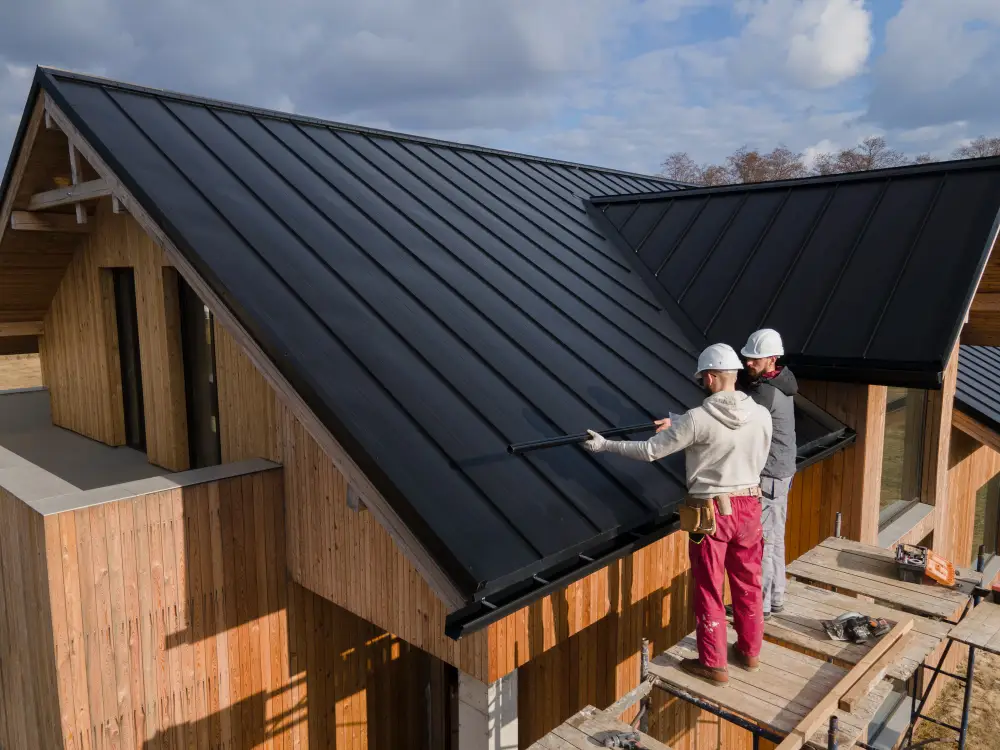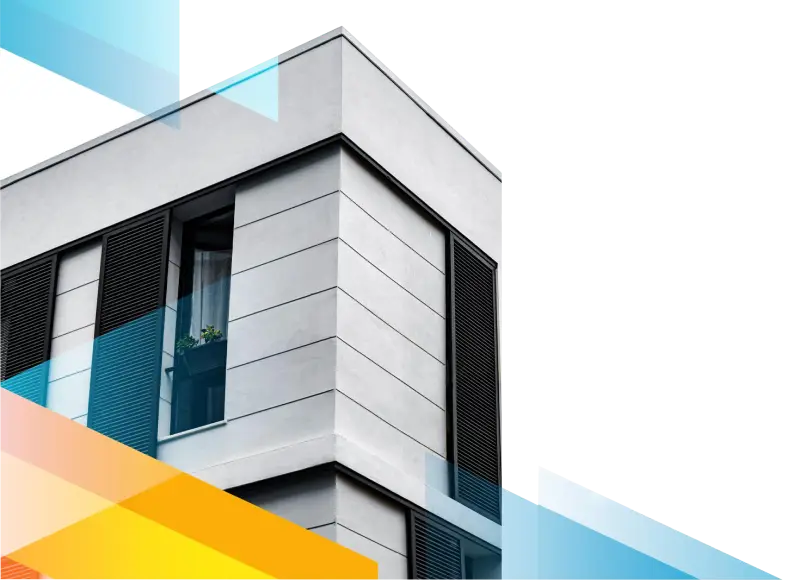Calculate Construction Loan Payments in Utah County, Utah

Construction Loan Payment Calculator for Utah County, Utah
Building a home, renovating an existing property, or developing a commercial space in Utah County, Utah, is an exciting endeavor, but it requires careful financial planning. At Summit Lending, we specialize in helping clients calculate construction loan payments and secure the funding needed to bring their projects to life. Whether you're in Provo, Orem, Lehi, or anywhere else in Utah County, our team of mortgage brokers, with over 50 years of combined experience, is here to guide you through every step of the financing process. Our goal is to make construction financing accessible, transparent, and tailored to your unique needs.
Utah County is a prime location for construction projects, thanks to its rapid population growth, thriving economy, and stunning natural landscapes. As of recent data from the U.S. Census Bureau, Utah County’s population has grown by over 15% in the last decade, making it one of the fastest-growing regions in the United States. This growth fuels demand for new residential and commercial developments, creating opportunities for builders and investors. With Summit Lending, you can calculate your loan payments with confidence and take advantage of this dynamic market. Use our Loan Calculator to get started, or reach out to us for personalized assistance.
Understanding Construction Loans in Utah County
A construction loan is a short-term financing solution designed to cover the costs of building or renovating a property. Unlike traditional mortgages, which provide a lump sum, construction loans are disbursed in stages, often called "draws," based on project milestones such as foundation completion or framing. This structure ensures funds are available when you need them for materials, labor, and other expenses. At Summit Lending, we offer a variety of construction loans for projects in Utah County, including custom home builds, speculative homes for developers, major renovations, and commercial developments.
Construction projects in Utah County benefit from the area’s unique blend of urban and rural opportunities. From the tech-driven economy of Lehi, part of the Silicon Slopes, to the family-oriented communities of Spanish Fork and Springville, there’s a wide range of possibilities for builders. According to a 2023 report by the Kem C. Gardner Policy Institute at the University of Utah, Utah County’s construction sector contributed over $2 billion to the local economy last year, underscoring the importance of accessible financing for continued growth. Summit Lending is proud to support this momentum by helping clients calculate payments and secure the right loan for their vision.
Types of Construction Loans Available in Utah County
At Summit Lending, we understand that every construction project is unique, which is why we offer a range of loan types to meet diverse needs in Utah County. Here are the primary options available:
1. Construction-to-Permanent Loans
This "one-time close" loan finances both the construction phase and the permanent mortgage with a single application. Once your project in Utah County is complete, the loan converts to a traditional mortgage, saving you time and reducing closing costs. This option is ideal for homeowners building their dream home in areas like Alpine or Saratoga Springs.
2. Stand-Alone Construction Loans
A stand-alone loan covers only the construction phase, requiring a separate mortgage to pay off the balance once the project is finished. This is a great choice for developers in Provo or Orem who may plan to sell the property after completion.
3. Renovation Loans
For those updating an existing property in Utah County, a renovation loan covers costs like materials and labor. Whether you’re modernizing a historic home in downtown Provo or adding space to a property in Eagle Mountain, we’ve got you covered.
4. Owner-Builder Loans
If you’re acting as your own general contractor in Utah County, an owner-builder loan provides the funds to manage your project. This option requires detailed planning but can save on costs for experienced builders working in areas like Payson or American Fork.
Ready to explore your options? Contact us at [email protected] or call 385-200-1470 to discuss your Utah County project with one of our expert Loan Officers.
How to Calculate Construction Loan Payments for Utah County Projects
Calculating construction loan payments is a critical step in planning your project budget. During the construction phase, most loans require interest-only payments on the funds disbursed. For example, if you’ve drawn $75,000 of a $300,000 loan at a 5% interest rate, your monthly payment would be approximately $312.50 ($75,000 x 0.05 / 12). As more funds are drawn for milestones like roofing or plumbing, your interest payments increase accordingly.
Once construction is complete, if you have a construction-to-permanent loan, the balance converts to a traditional mortgage with principal and interest payments. The final payment amount depends on the loan term (e.g., 15 or 30 years) and the interest rate at conversion. Factors specific to Utah County, such as local property values and construction costs, can also influence your loan terms. According to Zillow’s 2023 data, the median home value in Utah County is around $450,000, with construction costs averaging $150–$200 per square foot for custom builds, depending on materials and location.
For a precise estimate, use Summit Lending’s Loan Calculator to input your project details and get real-time payment projections using up-to-date interest rates. If you need help interpreting the results or tailoring a loan to your Utah County project, visit our Contact Us page or stop by our office at 305 E Main Street Suite 202, Tremonton, UT 84337.
The Construction Loan Process in Utah County
Navigating a construction loan can seem complex, but Summit Lending simplifies the process for Utah County clients. Here’s how it works:
- Application and Pre-Approval: Start by applying for a loan with Summit Lending. We’ll assess your credit, income, and project plans to determine eligibility and provide a budget estimate. Check out our Pre-Approval Page for more details.
- Project Planning: Submit detailed plans, timelines, and budgets for your Utah County build. This includes contractor bids and material costs, ensuring compliance with local regulations in cities like Lehi or Orem.
- Loan Disbursement: Funds are released in draws based on project milestones. An inspector may verify progress before each draw, ensuring your project stays on track.
- Construction Phase: Make interest-only payments on disbursed funds during construction, keeping costs manageable.
- Completion: Once finished, the loan converts to a permanent mortgage or is paid off via a separate loan or property sale.
Our team is here to assist at every stage. For first-time builders in Utah County, explore our First-Time Home Buyer resources for additional support.
Why Choose Summit Lending for Construction Loans in Utah County?
Summit Lending stands out as a trusted partner for construction financing in Utah County. Here’s why clients choose us:
- Local Expertise: We understand Utah County’s zoning laws, construction trends, and market dynamics, from Provo’s urban projects to rural builds in Mapleton.
- Personalized Service: Our brokers tailor loan solutions to your project’s scope, budget, and timeline.
- Competitive Rates: We offer attractive terms to minimize the cost of financing your build.
- Builder Support: Through our Builder Portal, we provide specialized services for contractors and developers in Utah County.
- Streamlined Process: From application to closing, we ensure clear communication and efficiency.
Don’t just take our word for it. Read what our satisfied clients say on our Testimonials Page and see why we’ve earned numerous 5-star Google ratings.
Construction Loan Requirements for Utah County Projects
Qualifying for a construction loan in Utah County involves meeting specific criteria due to the risks associated with building projects. Common requirements include:
- Credit Score: A minimum score of 680 is typically required, though higher scores secure better rates.
- Down Payment: Expect to pay 20-25% of the project cost upfront, though some programs may offer lower options.
- Debt-to-Income Ratio: Lenders prefer a DTI below 43% to ensure you can manage payments.
- Project Documentation: Detailed plans, budgets, and contractor agreements are essential.
- Appraisal: An appraisal of the completed project’s value helps determine loan eligibility.
Our team at Summit Lending will guide you through gathering these documents and meeting lender standards, ensuring a smooth process for your Utah County project.
Why Build in Utah County, Utah?
Utah County offers a compelling mix of economic opportunity and natural beauty, making it an ideal place for construction projects. The area is part of the Silicon Slopes tech corridor, attracting businesses and young professionals, which drives demand for housing and commercial spaces. According to a 2023 report by the Utah Foundation, Utah County’s unemployment rate is consistently below the national average at around 2.5%, reflecting a strong local economy. Additionally, the county’s access to outdoor recreation, including hiking in Provo Canyon and skiing at Sundance Resort, enhances its appeal for residential builds.
Construction costs in Utah County are also relatively competitive compared to other high-growth areas in the U.S. A report by Construction Dive notes that while material costs have risen nationally, Utah’s robust supply chains and local contractor networks help keep expenses manageable. By securing a construction loan with Summit Lending, you can capitalize on these advantages and build in a location poised for long-term value appreciation.
Get Started with Summit Lending Today
Ready to calculate your construction loan payments and start building in Utah County? Summit Lending is your trusted partner for financing projects of all kinds. Our experienced team is committed to providing personalized solutions, whether you’re constructing a family home in Orem or a commercial property in Lehi.
Don’t delay. Contact us now for a personalized quote and expert guidance. Email us at [email protected], call 385-200-1470, or visit our office at 305 E Main Street Suite 202, Tremonton, UT 84337. Explore more about our offerings on our Construction Loans Page or learn about our mission on our About Page. Let Summit Lending help you build the future you’ve always dreamed of in Utah County, Utah.





